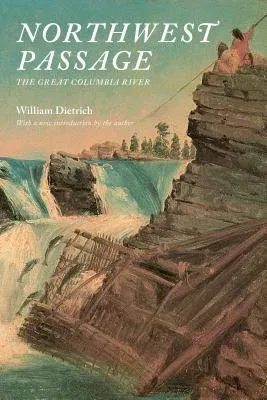When Lewis and Clark reached the Columbia River in 1805, they found a
roaring and unruly river with a treacherous mouth and confusing course,
boasting salmon runs without equal in the world. William Dietrich,
Pulitzer Prize-winning reporter and author of The Final Forest, reveals
the heroic stories, triumphant engineering, and disturbing taming of
this powerful, beautiful river. Northwest Passage is a masterwork of
history, geography, and science, a sweeping overview of the
transformation of the Columbia from its geologic origins and aboriginal
inhabitants to its pioneers, settlers, dam builders, farmers, and
contemporary native Americans. The Columbia is the second largest river,
by volume, in the U.S. and the largest on the west coast of the Western
Hemisphere. Its terrain varies from rain forests with more than 100
inches of precipitation a year to desert with as little as 5 inches per
year. It was once the most inexhaustible of rivers with as many as 16
million fish pushing up its 1,200-mile length each year to spawn and die
in its hundreds of tributaries, a run supporting one of the most
populous and complex native cultures on the continent. Before the
European discovery of the Columbia River, dreaming merchants and
intrepid explorers risked their lives and their money to find the
entrance to and navigate the wildly unpredictable course of this "Great
River of the West." Native Americans clung to the Columbia as the root
of their culture, colonizers came in search of productive land and an
efficient trade route, and industrialists seeking energy transformed the
region's wild beauty. The Columbia of today is a product of its
yesterdays. It is docile, run by engineers and turned onand off by
valves with fourteen major dams on the river and more than 500 in its
basin. The obstacle course of falls, boulders, whirlpools, and floods
has been harnessed and provides 70 percent of the Northwest's energy.
Yet these dams, plus pollution, irrigation, and growth, have

